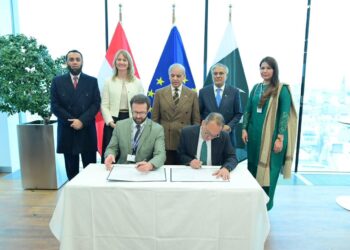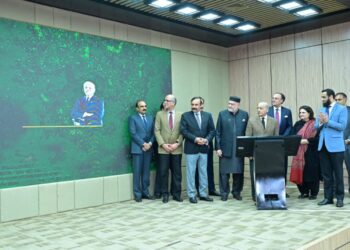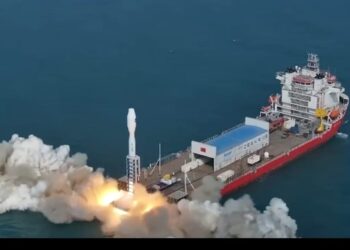Introduction: The Dawn of a New Strategic Chapter for Pakistan
Pakistan is entering a transformative era under the dynamic leadership of Field Marshal Syed Asim Munir, who currently serves as the Chief of Army Staff (COAS). With a mix of seasoned military command and diplomatic pragmatism, Field Marshal Munir is emerging not only as a key figure in Pakistan’s internal stability but also as an influential leader on the global stage.
In recognition of his strategic role, the prestigious British publication The Economist, in its article published on August 3, commended Field Marshal Munir for his evolving contributions to Pakistan–United States relations and broader geopolitical realignments in South Asia and the Middle East.
Field Marshal Syed Asim Munir: A Profile of Command and Diplomacy
From Military Intelligence to Army Chief
Field Marshal Asim Munir is a highly decorated military officer with a distinguished service record. Before assuming the post of COAS, he served as the Director-General of Inter-Services Intelligence (ISI) and Military Intelligence (MI)—making him one of the few officers to lead both premier intelligence agencies.
His career has been marked by a focus on internal security, counterterrorism, strategic diplomacy, and international defense relations. His appointment as Field Marshal was symbolic of institutional stability and a commitment to future-oriented military leadership.
Global Praise from The Economist: Acknowledgment of Diplomatic Transformation
Private Meeting with Trump: A Diplomatic Turning Point
According to The Economist, Field Marshal Munir’s private meeting with former U.S. President Donald Trump at the White House on June 18 marked a pivotal moment in U.S.–Pakistan relations. While the meeting remained off the mainstream radar, it signaled a quiet but impactful shift in Washington’s regional priorities.
The publication described the session as a “beginning of a new diplomatic chapter,” especially in the context of growing U.S. unease with India’s economic slowdown and its rising authoritarian tendencies under Prime Minister Narendra Modi.
US–Pakistan Trade Shift: Strategic Realignment in South Asia
Tariff Adjustments Reflect Changing Alliances
The Economist reported a significant policy divergence in U.S. trade behavior toward India and Pakistan. In recent days, President Trump has:
- Described India as a “dead economy”
- Imposed a steep 25% tariff on Indian exports
- Announced only a 19% tariff on Pakistani goods
While tariffs are often used as economic tools, in this case, the softer U.S. approach toward Pakistan indicates a broader realignment of American interests in South Asia. The Economist noted that Washington is working to revive trade, defense cooperation, and counterterrorism partnerships with Islamabad, signaling a strategic pivot.
Revival of Defense and Counterterrorism Cooperation
In line with the above, the U.S. is reportedly reviewing its military assistance packages to Pakistan. Plans under consideration include:
- Provision of armored personnel carriers
- Advanced night-vision equipment
- Enhanced border surveillance tools
- Joint counterterrorism training programs
According to The Economist, a senior U.S. official confirmed that Pakistan’s efforts against ISIS have been effective, and the Pentagon views Pakistan as a necessary partner in the region’s evolving security matrix, especially amid U.S. troop drawdowns in the Middle East.
India–Pakistan Relations: Rising Tensions and Tactical Retaliation
Field Marshal’s Stance on Indian Provocations
The article also emphasized Field Marshal Asim Munir’s firm retaliation against Indian military provocations, particularly in the Kashmir region. Despite international pressure to exercise restraint, the Field Marshal has reportedly maintained a no-compromise stance on Pakistan’s sovereignty and territorial integrity.
His response to cross-border violations and espionage activities has gained public admiration within Pakistan and respect in defense circles abroad.
International Attention on India’s Activities
According to The Economist, the U.S. and its allies are beginning to review India’s subversive activities, including:
- Cyber intrusions in neighboring countries
- Espionage networks operating beyond its borders
- Covert support to anti-Pakistan elements in Afghanistan
This reassessment of India’s regional conduct has contributed to a growing interest in enhancing bilateral ties with Pakistan, especially under Munir’s watchful leadership.
Balancing Superpowers: Pakistan’s Geostrategic Diplomacy
China, Gulf States, and the U.S.: A Balanced Foreign Policy
One of Field Marshal Munir’s most noteworthy achievements, as cited in The Economist, is his balanced approach to foreign relations. While reinforcing ties with the United States, he has also maintained robust partnerships with China and the Gulf countries, particularly Saudi Arabia and the UAE.
These nations have shown renewed confidence in Pakistan’s leadership by:
- Expanding defense collaboration
- Increasing foreign direct investment (FDI)
- Offering energy and infrastructure partnerships under CPEC and beyond
This multipolar diplomacy demonstrates Pakistan’s commitment to non-alignment and regional stability.
Crypto and Mineral Investment: Trump’s Inner Circle Eyes Pakistan
An intriguing revelation from The Economist highlights that Donald Trump’s close business circle is exploring investment opportunities in Pakistan’s:
- Cryptocurrency mining
- Rare earth minerals and precious metals
- Digital infrastructure and fintech platforms
This level of economic interest reflects growing investor confidence in Pakistan’s regulatory environment, led in part by military oversight in strategic sectors.
Field Marshal Asim Munir on the Global Stage
Direct Engagement with Diplomats and Global Investors
As per The Economist, Field Marshal Munir is now in direct communication with global diplomats, policymakers, and investors. Unlike traditional military leadership models, where engagement is typically restricted to defense channels, Munir’s proactive diplomatic style positions him as a modern military statesman.
This model of leadership, which blends strategic deterrence with global engagement, is reshaping how Pakistan is perceived by the world’s power centers.
Rising Popularity and National Trust
The article notes that Field Marshal Asim Munir’s domestic popularity has grown significantly since his firm stance against India and his emphasis on institutional integrity, counter-corruption, and national resilience. His leadership is characterized by:
- Transparent civil-military coordination
- Emphasis on merit and accountability within the army
- Public outreach through media and civil institutions
- Support for national projects like disaster relief and development zones
This blend of command capability and nation-building has made him a trusted figure not only in military ranks but also among Pakistan’s civil society.
Conclusion: A Defining Era of Strategic Diplomacy and National Rebirth
The Economist’s coverage paints a picture of a Pakistan that is shedding its image as a crisis-prone state and evolving into a strategic partner, economic player, and military power under the leadership of Field Marshal Syed Asim Munir. Whether it is through diplomatic re-engagement with the United States, managing complex ties with China and the Gulf, or responding firmly to Indian aggression, the Field Marshal has demonstrated a visionary and balanced leadership style.
As Pakistan continues to navigate global challenges—ranging from climate change and economic instability to regional conflicts and cyber threats—Field Marshal Munir’s leadership is being seen as a cornerstone of national revival and global integration.
With international praise, growing investor interest, and a recalibration of foreign policy underway, Pakistan indeed appears to be stepping into a new era of strength, stability, and strategic relevance on the global map.

























